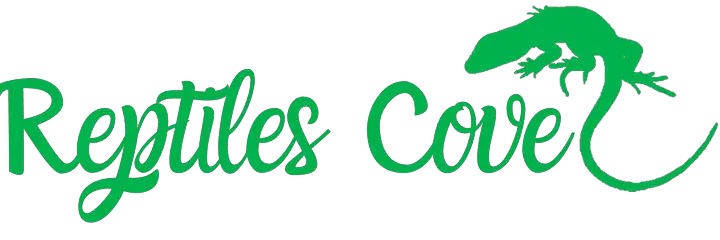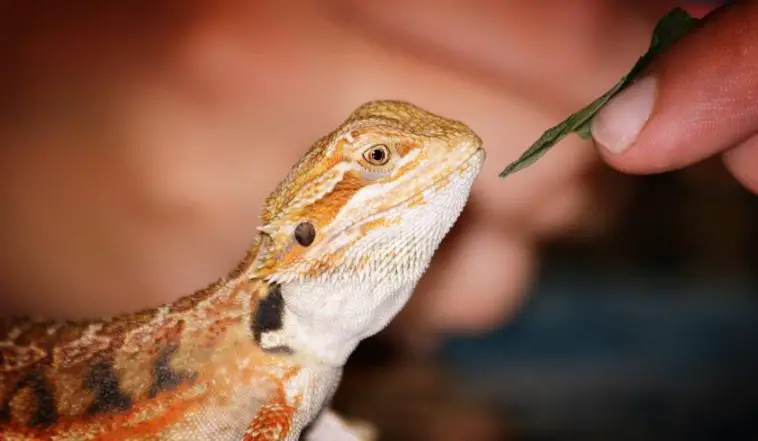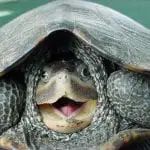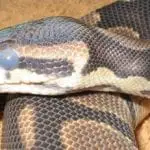Of all reptile pets, bearded dragons are the most popular. It is a great choice for both new experienced lizard enthusiasts. But apparently, it is common for them to come into being a picky eater and avoid their veggies and insects.
A bearded dragon won’t eat for some causes, most of them are less serious and not life-threatening. They will usually have a suppressed appetite for these main reasons: either it is preparing to brumate, which is just part of its hibernation cycle, or it is in discomfort such as shredding and stress brought by the environment.
Therefore, it is significant to think about their current general health and state of their natural home, specifically their cage set up. Typically, your bearded dragon will go back to its normal eating habits once shredding has passed. However, beardies in good physical condition with a good natural environment and not beginning to shred or brumate declines to eat are just being stubborn! They are very demonstrative and puzzling lizards, and will often express their negative feelings through disinterest in food.
Here are some simple approaches for your picky, albeit healthy beardie, to somehow start eating again.
Offer a Diverse Selection of Food
Humans, as we are, when we eat the same kind of food all the time, we tend to get bored with it and lose our interest to eat. The same thing goes for our bearded dragons, especially when offered the same kind of greens and veggies all the time.
Try to come up with a new variety of veggies to eat if they refuse to ingest greens anymore, and you’ll be surprised to see your reptile swallow something hurriedly and noisily. There are some veggies unsafe or highly toxic to bearded dragons, which include avocado, spinach, and beets.
Try to Make Their Feeding Experience Fun
As the pet owner, try to spare some time to hand-feed your bearded dragon. This way could encourage them to eat as they get trilled just because they want to be hand-fed. Some would only swallow their greens in this manner. Try to cut foods that aren’t live into small portions like bite-sized before offering to your dragons.
You can also try to pour small drops of unsweetened apple sauce to give a fresh and rousing taste or moisten their veggies to provide a different consistency.
Since bearded dragons are omnivores, which means they can eat both flesh and plant matter, it would be great to add wiggly feeders wrapped with greens if they were avoiding them at one time.
However, it is important to note that all insects fed to your beardies should have been respectively bred and taken from a trusted specialty pet shop.
Consider a Hunger Stimulant
A stimulant does not quite accomplish the aim to make your bearded dragon eat on their own. As it is not a perfect end game plan, I only suggest this as a last resort.
Even so, you can still use these stimulants as you motivate them to eat. Try to riddle out if other issues are hindering them from eating or knowing the foods they would prefer.
Zilla appetite stimulant or Reptaid is the most recommended by many. Feeding with this excitant-like substance will aid if they start to look frail or lose too much weight.
By the book, Reptaid functions to revive their natural desire for food. It also utilizes herbal extracts to let them combat parasitic and viral infections. Seemingly, this approach is a good solution for a short amount of time while you get them a vet and know the reason for its loss of appetite.
Hold Your Ground
Oftentimes, the cause for your reptile’s unlooked-for lack of appetite can be simple, think about holding your ground as long as your pet is not malnourished and in good weight.
Not until they recognize their hunger to eat their veggies, you can consider holding back feeders for a week or more. You can give them feeders at a slow pace once they begin to chew their greens.
If you pet an adult beardie, give them feeders 2-3 times in a week only, and greens must be consumed daily. Make sure the insect is not too large for them to swallow and keep track of their weight at all times. Yearning for something greater, bearded dragons tend to dodge the food you presently offer. You would be encouraging this spoilt behavior more than ever when you comply.
Force Feeding
Serious situations will lead you to force-feed your bearded dragon as instructed by a reptile vet until they get the treatment needed and continue an ordinary feeding. When they display signs of dehydration or malnourishment, you would need to feed them yourself. They are usually anorexic when stress or generally sick.
Fill a small syringe with a smashed dragon diet, which includes veggies, fruit, worms, or insects for protein and a vitamin additive.
Using a little pressure, open the mouth of the dragon with your thumb and forefingers. Introduce the syringe immediately. It is necessary to be fast as it will close its mouth again, making you unable to position the syringe steadily. Push the plunger down slowly. Make sure to give your beardie time to ingest well, preventing your pet from the gag and choke up.
Introduce one tablespoon of blended food consecutively.
Force-feeding is distressing for your bearded dragon, so it is recommended only as an end most option.
Video Source: Youtube
Reasons Why Your Bearded Dragon is not Eating
It’s also crucial that we take a look at a few reasons as to why your bearded dragon is not eating. Identifying the problems can truly help us determine what kind of solutions we must take to ensure that our pets remain healthy.
First of all, check whether or not they are hibernating. Hibernating can cause them to stop eating. This happens during winter seasons, where they become dormant. Their circadian rhythms are affected and can make them lethargic. Hence, they lose their appetite. If you live in an area of cold climate, then don’t be surprised if there are times when your bearded dragon won’t eat. Also, you need to note that their habitat plays a very important role in their overall health. The healthier the habitat, the healthier their appetite is. Don’t forget to adjust the temperature to ensure that they remain healthy.
Stress
Another possible reason why your bearded dragon won’t eat is that they are undergoing stress. You want to make sure that they live a healthy and happy life. Bearded dragons that are being “bullied” are prone to stress, and this can lead to bad eating habits. If you think that one of your pets is being bullied, then make sure that you separate him or her. It’s essential that you help them bring back their confidence.
Disease and Health Issues
Diseases and other health issues can also make your pets cease eating. For this reason, you have to feed them the right meals and provide them the right environment. This is where adding vitamins and supplements on their diet becomes very important. Be sure that you check for any signs of serious infections. Visiting a reputable veterinarian and checking for any signs of diseases is necessary if you want your pets to remain healthy and happy.
Go to a reputable veterinarian only. It’s essential that you check their reputation and background history first. Find out if the vet has great credentials and if they are known for taking care of bearded dragons. Also, don’t forget to read reviews and testimonials before you avail of any of their services. If you think that the vet has received too many bad reviews and testimonials, then it’s time for you to look for other professionals.
Final Words
There you go! I wish you’ll find this article helpful to get your bearded dragons to get back it’s appetite as it is alarming a lot of pet owners. Reminder, it is necessary to always rule out the reason why your reptile refuses to eat. It can be an environmental factor or a health concern that might need a quick trip to the vet immediately. It is vital in getting your bearded dragon to swallow again the right temps and UVB exposure, as well as their physical state.
Keeping your bearded dragons healthy should not be challenging if you have a genuine love for them. As a pet owner, make sure that you always provide them their necessities. Feed them with the right food and place them in a healthy environment. The rewards of a healthy bearded dragon are indeed priceless. They can give you incredible joy that you won’t experience from any other pets. We also encourage you to do online research about caring for your bearded dragon. Knowing how to properly take care of them is vital if you want them to live long. Remember these tips, and it’s a guarantee that your pet will remain happy and satisfied with his or her life.



